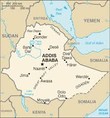On the way to Addis Ababa: Funding development goals
Published on Mon, 2015-01-26 08:08
The Third UN Conference on Financing for Development will take place in Addis Ababa in July 2015. The key question will be how to finance the Sustainable Development Goals. In September 2015 the UN will finalize the new global Sustainable Development Goals (SDGs). The political negotiations within the Open Working Group (OWG) have produced an ambitious catalogue of 17 main goals and numerous sub-goals, all of which focus equally on economic, social and environmental aspects of sustainable development. It is yet to be seen whether the goals put forward by the OWG will be watered down by the time the negotiations are over. Several countries have already announced their opposition to specific proposals. Also not clear is the question of how the future goals are to be funded. The one sure thing is that their implementation will cost the poorest developing countries more than they can afford on their own. The countries in the South have therefore insisted that as early as July 2015, in other words two months before the final SDG negotiations, a high-level UN conference be convened in Addis Ababa on the subject of financing for development. One key goal of this conference will be for industrialized countries to confirm the target of investing 0.7% of gross national income in official development assistance and that they commit to a binding new implementation date. The fact is that the 0.7% target should already have been reached by 2015. Innovative funding sources and illicit financial flowsAt the UN Conference on Financing for Development in Addis Ababa, the industrialized countries themselves will no doubt be pushing mostly for measures that also benefit their own enterprises abroad as well as their well-to-do citizens. This includes for example, the establishment of public-private investment funds to finance start-up companies in developing countries. Also up for discussion are government-sponsored risk guarantees for investments by multinational corporations in all developing countries that are regarded as politically fragile and/or economically risky. The problem with these measures however, is that they promote the private sector exclusively. While those who stand to benefit include not just large multinational groups but also local companies in developing countries, the proposed mechanisms will not fund important public services such as education, health and infrastructure building and maintenance. Developing countries are still urgently in need of higher official revenues for these key government tasks. Another topic at the Addis Ababa conference will be illicit financial flows, which account for billions in shortfalls in the budgets of developing countries each year. These have to do with the shifting of assets to foreign accounts so as to avoid taxes or conceal corruption and other illegal activities. The amount of these illicit transactions is generally estimated to outstrip official development aid spending by industrialized countries by several times. In addition, losses are sustained by developing countries because multinational corporations transfer their profits to foreign tax havens. Stopping these outflows would be crucially important to supporting the countries concerned in funding the Sustainable Development Goals. Switzerland's roleAs the world's largest financial centre in offshore private banking, Switzerland continues to bear responsibility. It has in fact made some progress, but many legislative proposals that could benefit developing countries are still pending in Parliament. Below is an overview of the situation:
Unfinished homeworkWithout new funding mechanisms, the Sustainable Development Goals will amount to nothing more than a paper tiger. At Addis Ababa therefore, Switzerland should advocate for effective measures to address tax evasion by private persons and profit shifting by multinational corporations for tax purposes. Switzerland undoubtedly needs to act on the domestic policy front in this regard. By Mark Herkenrath, Alliance Sud. Source: Alliance Sud . » |
SUSCRIBE TO OUR NEWSLETTER



